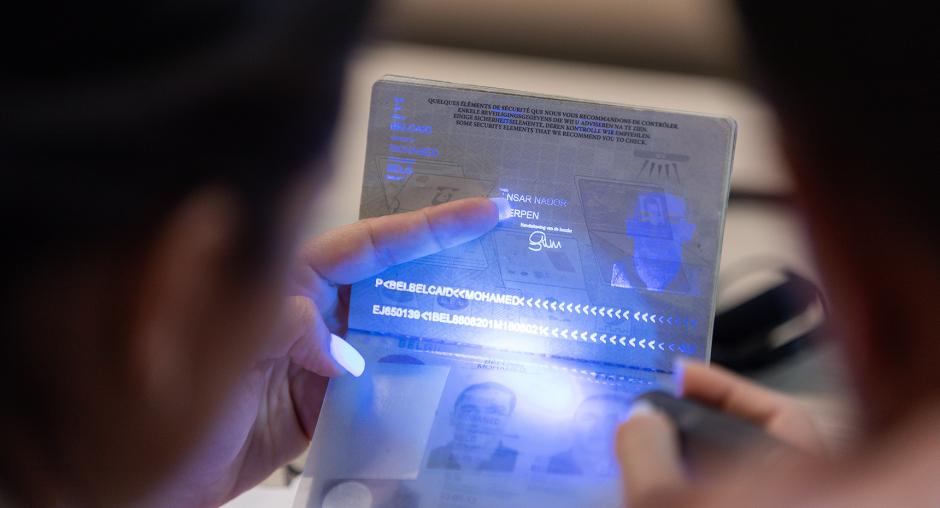OSCE and Spain’s National Police enhance capacities of Moldovan border police officers to detect forged documents and impostors

From 2 to 13 September, the OSCE’s Transnational Threats Department, in partnership with the Spanish National Police (SNP) and close co-operation with the OSCE Mission to Moldova, held a two-week training course in Chișinău on identifying forged documents and impostors at border crossing points. Nineteen officers, including 12 women and seven men, from the Moldovan Border Police participated in the course, which included both an introductory and an advanced component.
Participants were briefed on new trends in the forgery of documents, refreshed their knowledge on the international regulations for the issuance of travel documents, and learned new techniques for verifying the identity of impostors in operational settings, such as at border crossing points. They also worked with real travel and identification documents analysing the techniques for forgery that lead to traveling on a stolen identity.
Experts from the Spanish National Police highlighted the importance of these ongoing training activities. “Whoever holds a false document hides something, therefore, it is our duty to detect who is behind. Consequently, it is our duty to learn how to detect document fraud,” emphasised one of the experts.
As Moldova and Ukraine share a 1,222-kilometer-long border, the country has seen a significant change in its border security over the last two and a half years as a result of Russia’s war against Ukraine. For instance, the Moldovan Border Police have reported an increase in the number of border crossings, as well as a spike in illegal migration and illicit trafficking. These threats only reinforce the need and importance of improving border police skills through training opportunities such as this course.
The training cycle will continue with a Training of Trainers course in 2025 for a smaller cohort of participants selected from the same group.
This project supports OSCE participating States and Partners for Co-operation in their efforts to reduce the number of people that manage to illegally cross borders using a fake or stolen identity or by posing as an impostor. The project is made possible through the generous financial support of the U.S. Mission to the OSCE.
